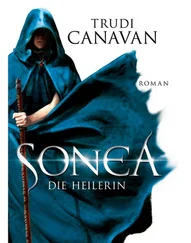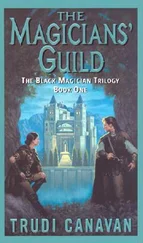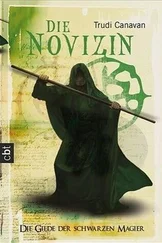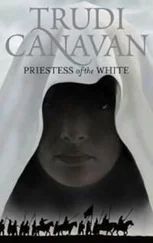The woman turned to look at Lilia again. “What about her? Is she a client? Should I warn her to keep her bedroom locked? Or is she my replacement?”
“Well, she hasn’t turned into a traitorous, thieving rot-addict yet,” Anyi snarled in reply.
Heyla whirled around to face Anyi, one hand curling into a fist, but Anyi, with the slightest shift of her stance, was suddenly poised and ready for a fight. Heyla paused, and stepped back.
“Whore!” she spat, then stalked off down the street.
Anyi watched the woman until she had disappeared far down the thoroughfare, then she beckoned to Lilia. “We’d better keep an eye out,” she said. “She might try to follow us – or have someone else watching.”
She headed back down the alley, then took a narrow, covered route between two buildings into another alley.
“Who is she?”
“An old friend, believe it or not.” Anyi sighed. “We were close once, until she tried to sell me off to our enemies for money to buy rot.”
“What did she want?”
“Money. Again.”
“She threatened you?”
“Yes.”
“If you’ll forgive me saying this,” Lilia said. “But you’re having about as much luck in choosing who you associate with as I am.”
Anyi didn’t smile. Instead she looked sad, and Lilia regretted her words.
“I’m sorry.”
“It’s fine. I’m over her,” Anyi said. She quickened her pace. Lilia lagged behind, then forced her legs to move faster so she could catch up.
“ I’m over her ”, she thought. That sounds like what people say when … Wait. What was it Heyla had said? “Should I warn her to keep her bedroom locked? Or is she my replacement?” That could mean something else but …
As another possible meaning behind the woman’s words dawned on her, she could not help looking ahead, at her guide, and speculating. Perhaps I’m wrong about her and Cery. Anyi was no great beauty, but she was … impressive . Poised, strong and smart. In fact, if it weren’t for Naki … no, don’t think that.
Because not only was it disloyal to Naki, but it would make working with Anyi much too distracting.
Looking pale and ill, Tayend moved to the railing to join Dannyl and Achati. He’d decided that morning that he would only take a half-dose of the seasickness cure, so that he wouldn’t be groggy when they arrived at their destination. Dannyl knew with fatalistic certainty that Tayend would be wide awake by the evening, and keeping him and Achati from having any private time together. Not that any private time would come to much, since Achati warned us that our next host is a … how did he put it? … a “disapproving prude”.
“Welcome to Duna,” Achati declared, gesturing toward the port ahead.
The Inava was sailing toward a wide valley. On either side, cliffs rose in staggered, weathered layers. In the centre, a wide, muddy river poured out into the sea, the grey-brown water cutting a swathe through the salt water for some distance before it mixed with the ocean.
Achati had been not entirely accurate in his declaration. The valley was not the beginning of the Duna lands. The ship had been sailing past them for the last few days, though there was no agreed boundary point. The valley ahead was where most visitors disembarked when they arrived by sea, and it was the closest thing the Duna had to a capital city.
Unlike the dry land and rough cliffs they had seen to their left for most of the journey, the valley was green with vegetation. Houses had been built on high stilts, the level of floodwaters suggested by stains on the wood high above the height of a man. Ladders provided access to some, while rough staircases made of bundled and bound-together logs had been added to others. The gathering of huts was called Haniva, and the valley was known as Naguh Valley.
The captain called out to the slaves, who began to scamper around the ship. The anchor went down and sails were furled.
“We can’t come any closer,” Achati explained. “The silt from the yearly floods makes the water too shallow. Occasionally storms pass through and wash the build-up away, but since they’d probably destroy any dock we might build it’s not worth trying to keep the bay clear with magic.”
When the ship was secure, the slaves lowered a smaller row-boat down to the water. Dannyl, Tayend and Achati thanked the captain, then climbed down a rope ladder into it. Once on shore, they waited for the slaves to return to the ship for their travel trunks and followed as they carried these into Haniva.
The town had no streets, just trails kept clear by the passing of feet, and the houses appeared to be randomly placed – often in groups connected by narrow walkways. Floods were obviously not expected for some time, Dannyl guessed from the crops growing around the houses. These were planted in a way that allowed room for the enormous trees, from which fruit hung in bunches. Each was a single smooth trunk topped with either an umbrella-like mass of branches, or an explosion of huge leaves. Tall spikes shooting from the ground puzzled Dannyl at first, until he saw a few larger ones sprouting leaves, and realised they were the sapling versions of the trees, throwing all their energy into growing tall enough to escape flood waters before putting out foliage.
As they passed people walking in the field, he noticed that their skin and build was somewhere between the stocky brown typical of Sachakans and the grey slim build of the tribesmen. He assumed there had been some interbreeding of the races over the centuries. Settling in towns was not the usual habit of the Duna tribes, from what Dannyl had read or been told. They were a nomadic people.
Perhaps these people could be considered another race , he thought. Maybe called “Naguhs” or “Hanivans”.
After they had passed a few dozen houses, the slaves headed toward a group of buildings standing alone in a field. It was immediately obvious that these were different, despite being constructed of the same building materials and raised on stilts. Their arrangement was symmetrical, with one house in the centre three times the size of the local homes, and smaller buildings arranged around the sides and rear, all accessed by a walkway. A single wide stairway led up to the central house, and the path that led to it was straight. As the slaves reached it they stopped and waited for Achati, Dannyl and Tayend to climb up ahead of them.
Climbing the stairs changed not only the view of the town, but the way Dannyl viewed it. He could see more houses, and the people in them, as well as the workers in the fields. Suddenly Haniva felt far more populated and town-like.
A house slave emerged and threw himself face down on the wooden deck at the top of the stairs.
“Take me to Ashaki Vakachi, or whoever speaks for him when he is absent,” Achati ordered.
The man leapt to his feet and led them inside. The inner walls had been painted white and led down a corridor to a large room. Like a typical Sachakan home, except the walls are straight. In the Master’s Room, a man stood waiting for them. His skin had a hint of dusky grey to it, and his shoulders were narrow, hinting at a touch of Duna in his blood.
“Welcome, Ashaki Achati,” the man said, then as Achati thanked him he turned to his two companions. “And you must be Ambassadors Dannyl and Tayend.”
“We are,” Dannyl replied. “And we are honoured to be staying with you.”
The man invited them to sit. “I have arranged for a light meal to be served, then you each will be taken to your own obin – one of the detached houses you no doubt noticed on your arrival. They are a local idea, usually added for the use of a son after he is married, or an elderly relative after the son inherits the house, but also to keep an eye on unmarried young men and women.”
Читать дальше











